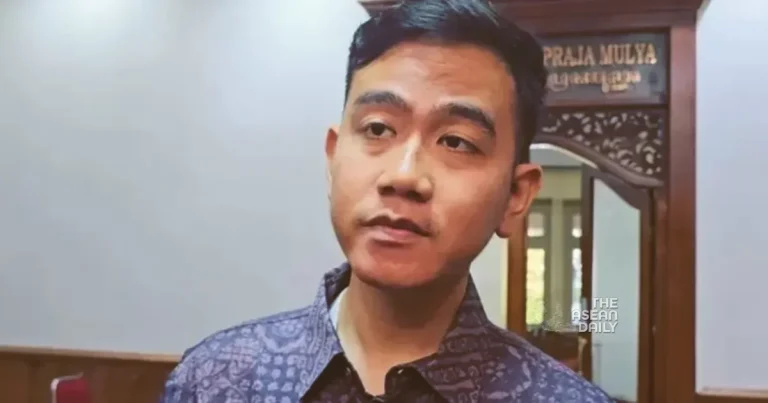23-12-2023 (JAKARTA) In a heated exchange during the vice presidential debate on Friday, Gibran Rakabuming, the son of President Joko “Jokowi” Widodo, outlined his ambitious plans for Indonesia’s future. Facing off against Mohammad Mahfud MD and Muhaimin Iskandar, Gibran navigated economic topics with finesse, emphasizing the need for a “golden Indonesia” and innovative strategies to tackle the challenges ahead.
Gibran’s three-hour debate touched on key aspects of his economic vision, with a particular focus on leveraging artificial intelligence (AI) expertise, continuing the capital relocation project, and positioning Indonesia as a global leader in green energy.
“To achieve a golden Indonesia, we need golden generations,” Gibran declared, echoing the shared vision of all three tickets for a developed Indonesia by its 100th anniversary in 2045. He emphasized the importance of turning future challenges into opportunities and the necessity of nurturing talent armed with skills in AI, blockchain, robotics, Shariah banking, and crypto.
Despite skepticism, Gibran showcased familiarity with economic policies, defending Jokowi’s decision to move the capital from Jakarta to Borneo. He described the planned relocation as a symbol of the country’s transformation and spoke about the continuous industrialization of the mining and agricultural sectors to create new jobs and propel Indonesia out of the middle-income trap.
Gibran’s forward-looking approach extended to environmental concerns, as he envisioned Indonesia becoming a “global king of green energy.” He highlighted the development of biodiesel and green jet fuel from palm oil, along with bioethanol from sugar cane. Such initiatives, he believes, will contribute to a sustainable and eco-friendly future.
The demographic dividend expected between 2020 and 2030 was also addressed by Gibran, who stressed the one-time nature of this opportunity, urging hard work and bold leaps. Plans for a new special agency to boost tax revenue and address the low tax-to-GDP ratio were also part of his economic agenda.
Gibran’s eligibility as a vice presidential nominee had faced scrutiny due to his age and the controversial Constitutional Court ruling, led by his uncle. Despite the criticism, Gibran remains a prominent figure in Prabowo’s camp, with recent polls indicating a significant lead over rivals Ganjar Pranowo and Anies Baswedan.
The vice presidential nominee defended Prabowo’s choice and showcased resilience amidst controversy. In contrast, Mahfud emphasized a 7% annual economic growth target, pledging to combat corruption to spur investment and foster growth. His agenda included creating 15 million new jobs, supporting small businesses, and providing scholarships for low-income households.
Muhaimin, echoing Anies’ criticism, questioned the capital relocation plan’s allocation of funds. He suggested redirecting resources to urgent needs, such as building schools in Borneo. Muhaimin also introduced an ambitious goal of constructing 40 new cities across Indonesia, though details on implementation were scarce.
Gibran’s debut in the vice presidential debate showcased a mix of vision, resilience, and a commitment to positioning Indonesia as a global economic player. As the nation looks towards the future, the debates continue to shape public opinion, providing a glimpse into the economic trajectories envisioned by each candidate.




